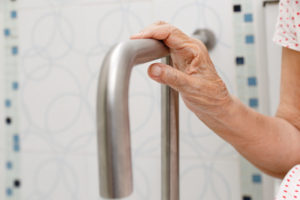When you are in the hospital, returning home is an exciting time. There’s just nothing quite like sleeping in your own bed, free of midnight vitals checks or loud sounds from the hallway. Seniors who have spent days in a hospital bed or months in a skilled nursing rehabilitation center are just as excited to finally return to the home they love. However, returning home can be more than just exciting – for seniors, it can be dangerous.
Hospital discharges can sometimes feel premature, and skilled nursing facilities often must discharge a senior when the person no longer makes progress on Medicare goals. Returning home while still feeling weak or trying to get used to a new medication regimen can make seniors more susceptible to a fall, an infection, or another circumstance that can take them back to the emergency room in the first few months.
Fortunately, discharge planning does not have to be hurried. Support at home does not have to be an afterthought. Here is what you need to think about to assure a safe transition back home after a hospital or skilled nursing stay.
Make Home Safe
Before a senior sets foot in their home, family members or friends should be sure the main living space is ready for their arrival. Decrease clutter and install helpful grab bars to decrease the chance of falls. Add nightlights for additional visibility at nighttime, and consider renting a hospital bed if necessary.
Make Meals Healthy
Seniors returning from the hospital are not quite ready to focus on preparing healthy meals. However, proper nutrition is crucial during this recovery time. Eliminate this worry by stocking the freezer with individual servings of healthy meals that the senior can pop in the microwave. Consider signing up for Meals on Wheels in your local area for a few months to assure healthy meals arrive consistently during recovery and make grocery drop-offs when possible.
Encourage Water Intake
Urinary Tract Infections (UTIs) can be especially dangerous for seniors, causing acute confusion, fevers, and even increasing the risk of a fall. During recovery time at home, seniors are also prone to not drink enough water to keep UTIs at bay. Encourage water intake by keeping water bottles in the fridge, in the bedroom, and within reach from a favorite sitting spot.
Keep Follow Up Appointments
After returning home, seniors often have a list of follow up appointments including doctor visits and outpatient therapy sessions. Make these appointments a priority and resist the temptation to skip them.
Have a Support System in Place
For most family members and friends, it is nearly impossible to help an aging loved one with meal preparation, grocery shopping, and transportation to follow up appointments. That’s where CaringGivers comes in. We work with family members and the senior to develop a plan for caregiver visits in order to assure safety and follow up compliance, as well as to provide a healthy meal and a friendly face.
If you or your loved one are returning home, make us one of your first calls. We can assist with preparing the home and encouraging the senior, keeping them out of the hospital and happy at home. Give us a call today to learn more about how our services can support any senior at home.


